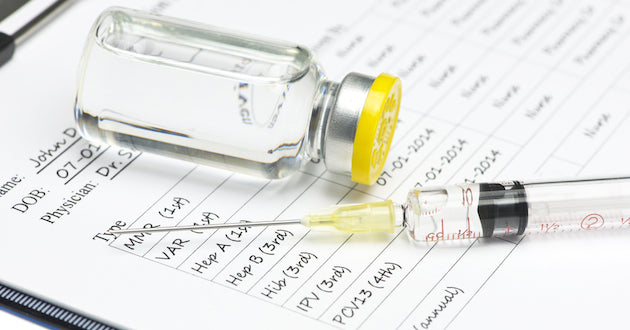It’s Brain Awareness Week! The Dana Foundation annually recognizes a week in the middle of March (16th-22nd this year) as the international campaign to increase public awareness of brain research. At the Hallelujah Diet, we encourage a clean, healthy lifestyle built on the foundation of natural remedies for the mind, body and spirit. You probably already know that the brain is the most complex part of the human body. The three-pound organ houses human intelligence, interprets the senses, initiates body functions and movement, and controls behavior. But even with layers of defense (the skull, of course, and sturdy membranes known as meninges and fluid) protecting the brain, it’s still susceptible to damage, disease and malfunction. Plus, aging causes the brain to shrink and cognition to decrease. Studies show that “a healthy life both physically and mentally may be the best defense against the changes of an aging brain.” Before we do a deep dive into your grey matter, did you know these facts about the brain?
Fun Facts About the Brain
- The brain can feel no pain because there are no pain receptors in the brain.
- The brain consists of 100 billion neurons, which transmit information throughout the body.
- The human brain is at least 60% fat, making it the fattest organ in the body.
- At birth, a baby’s brain is almost the same size as an adult brain and contains most of its brain cells for life.
- The brain stops growing around age 18.
- A small area of the brain known as the amygdala is responsible for your ability to read someone else’s face for clues as to how they are feeling.
The Brain and Its Components
You can see, smell, taste, hear and feel because of your brain’s ability to communicate these signals back and forth through neurons to your sensory organs. The brain is divided into the following four sections that work together to execute the brain’s many amazing functions.
- Cerebrum: The largest part of the brain, it’s in charge of memory, speech, the senses and emotional responses. The cerebrum’s four lobes -- frontal, temporal, parietal and occipital -- each handle parts of these tasks.
- Cerebellum: Located below and behind the cerebrum, the cerebellum is connected to the brain stem and is responsible for motor functions, balance and interpreting information sent to the brain by the sensory organs.
- Diencephalon: It’s located inside the cerebrum above the brain stem and governs sensory functions, control of food intake and sleep. Its sections are the thalamus, hypothalamus and epithalamus.
- Brain stem: The brain stem handles respiration, blood pressure and some reflexes.
Common Brain Conditions and Diseases
Brain disorders, conditions and diseases affect millions of people around the world each year. Research to find causes and cures for neurodegenerative diseases, affecting short- or long-term memory or cognitive function, are ongoing and never-ending due to the persistence of poor diets, pesticides, toxins and unhealthy lifestyle habits. Below is a look at some of the most common brain-associated conditions:
- Attention deficit hyperactivity disorder (ADHD): A chronic condition including attention difficulty, hyperactivity, and impulsiveness. ADHD occurs in an estimated 3 to 5% of preschool and school-age children.
- Depression: A mood disorder causing a persistent feeling of sadness and loss of interest. Clinical depression is one of the most common mental illnesses, affecting more than 19 million Americans each year.
- Alzheimer's disease: A progressive disease that destroys memory and other important mental functions. It is the most common form of dementia, and it affects about 5 million Americans.
- Multiple Sclerosis (MS): A disease in which the immune system eats away at the protective covering of nerves. It is estimated that there are more than 2.5 million cases of MS worldwide.
How to Maintain a Smart, Happy, Healthy Brain
The idea that we humans only utilize 10% of our brain capacity is a myth -- each part of the brain has a specific function. Plus, did you know the human brain consumes the largest portion of the total energy produced by the body? Even though your brain only accounts for 2% of total body weight, it consumes 20% of the body’s energy in order to maintain healthy brain cells and fuel nerve impulses. There are things you can do on a daily basis to fuel your brain, which in turns helps maintain the health of the entire body.
Exercise. There are so many reasons to maintain an active lifestyle (preventing heart disease and diabetes, losing weight or lowering blood pressure, to name a significant few), but research also shows that regular aerobic activity helps protect verbal learning and memory by boosting the size of the hippocampus, the part of brain responsible for these aspects.
Avoid toxins whenever, wherever possible. Organophosphorus pesticides (most common in agriculture), lead and mercury are harmful to brain development in children (especially in utero), according to a 2012 paper published by the National Institutes of Health. Excitotoxins, such as MSG, could also play a role in destroying neurons.
Take care of your “second brain.” Your gut flora are heavily dependent on your diet: Processed foods and those high in sugar destroy healthy gut bacteria. Eating healthy foods rich in vitamins and nutrients and taking probiotic supplements will increase your gut flora and subsequently support brain health.
Get quality sleep! Sleep recharges the brain: According to the National Health Institutes, “Some experts believe sleep gives neurons used while we are awake a chance to shut down and repair themselves. Without sleep, neurons may become so depleted in energy or so polluted with byproducts of normal cellular activities that they begin to malfunction,” Sleep deprivation may also affect your ability to make new memories.
Sharpen your mind. A simple way to boost brain function is to keep on learning. Neurons and their connections grow and change when you learn something, which can include a variety of activities such as learning a new language or how to play a musical instrument to practicing a new hobby or skill. You can also play memory games, do crossword puzzles or play board games to exercise your mind and keep your brain fit as you age.
Feed your brain the best nutrients There are numerous contributing factors that affect brain health, but one of the most important are the nutrients you consume. In one large-scale study of one million New York students, researchers examined the effects of lunch food on IQ tests. They recorded IQ scores before and after preservatives, dyes, and artificial colors and flavors were removed from lunch items, and found a 14% improvement in scores afterward. Additionally, before the food item changes, 120,000 students were performing two or more grade levels below average whereas after the number dropped to 50,000. Added to your daily nutrition, the following brain-boosting nutrients will help boost brain function and potentially protect you from falling victim to brain-related illnesses.
Vitamin D3 Lower vitamin D blood levels are linked to a higher risk of cognitive impairment. Sun exposure is the best, most natural (not to mention mood-boosting and glorious) way to get vitamin D, but high-quality natural supplements are also available, especially for those who don’t see much sun in the winter.
B Vitamins, especially B12, B6 and folate, are vital in molecular reactions for brain functions. Deficiencies in vitamin B12 can cause lower brain volume (suggesting a link to causing brain shrinkage) as well as lead to depression in adults. In natural form, B12 is only found in animal food sources, but animal foods are damaging to your health not to mention poor for the environment, so it’s a smart choice to take supplements. Vitamin B6 can be found in potatoes, bananas and chick peas, while folate (which is important in preventing neural tube defects during pregnancy) are found in leafy greens, citrus fruits and peas.
Flavonoids can boost the brain’s ability to form new neurons, prevent brain cells from dying and assist “synaptic plasticity,” which is the process that allows neurons to form connections with each other. Flavonoids are helpful for learning, memory and cognition in general. Antioxidant-rich flavonoids, like blueberries and avocados, further help support brain health by fighting off free radicals that attack cells.
Curcumin comes from the root of the turmeric plant and is the spice that gives curry its yellow color. The polyphenol is powerful at fighting off amyloid-beta plaques that form in the brains of Alzheimer’s patients, and studies show it can even increase memory for those with the disease.
Glucose (sugar) is the primary energy source for the brain, and is used up quickly because mental activity requires a lot of energy. However, you need to take the right kind of sugar -- if your sugar intake is processed or too high, you can actually deprive your brain of its energy source, thereby lowering your brain’s ability to concentrate. Complex carbs, like broccoli, grapefruit or apples, take longer to digest than simple sugars, providing more energy for longer periods of time.
Omega-3 fatty acids are essential building blocks for cell membranes. They support the synapse where neurons interact and exchange neurotransmitters with each other, and therefore play a major role in cognition. Docosahexaenoic acid, or DHA, is the most abundant omega-3 in the brain. DHA is a vital structural component of the brain. In fact, with approximately 60% of the brain composed of fats, about 25% are DHA. The body cannot manufacture DHA, so it must come from our daily nutrition. DHA-deficiency has also been associated with brain disorders such as ADHD and dyslexia. You can find omega-3s in plant-based foods such as flax seeds and walnuts. Also, DHA is extremely vital for the baby’s brain and eyes during pregnancy -- and it’s critical for optimal brain development in children as well.
The Brain Power Smoothie
To get more DHA in your diet, try our Blueberry Brain Power Smoothie. It makes a great breakfast option! Blend all ingredients until smooth and enjoy immediately. We recommend adding B-Flax D Fiber for vital nutrition as a fantastic fiber source. It is formulated specifically for long-term use, providing an easy transition for those who have been using Hallelujah Diet Fiber Cleanse. You can also add Finest Pure Fish Oil, an ultra refined fish oil product that meets or exceeds all International Fish Oil Standards (IFOS) program approval guidelines. In fact, Pharmax insisted that this product be tested much more stringently than necessary to demonstrate its premium level of purity and safety. This dietary supplement has a natural orange flavor that works well in many of our smoothie and juice recipes.
The brain is the central control station of your body and needs proper care to help it stay healthy and sharp. Start promoting your brain’s health, every day. Feed your body the right nutrients, avoid harsh toxins, maintain an active lifestyle, sleep like a baby and manage your stress for a boost in brain power.






